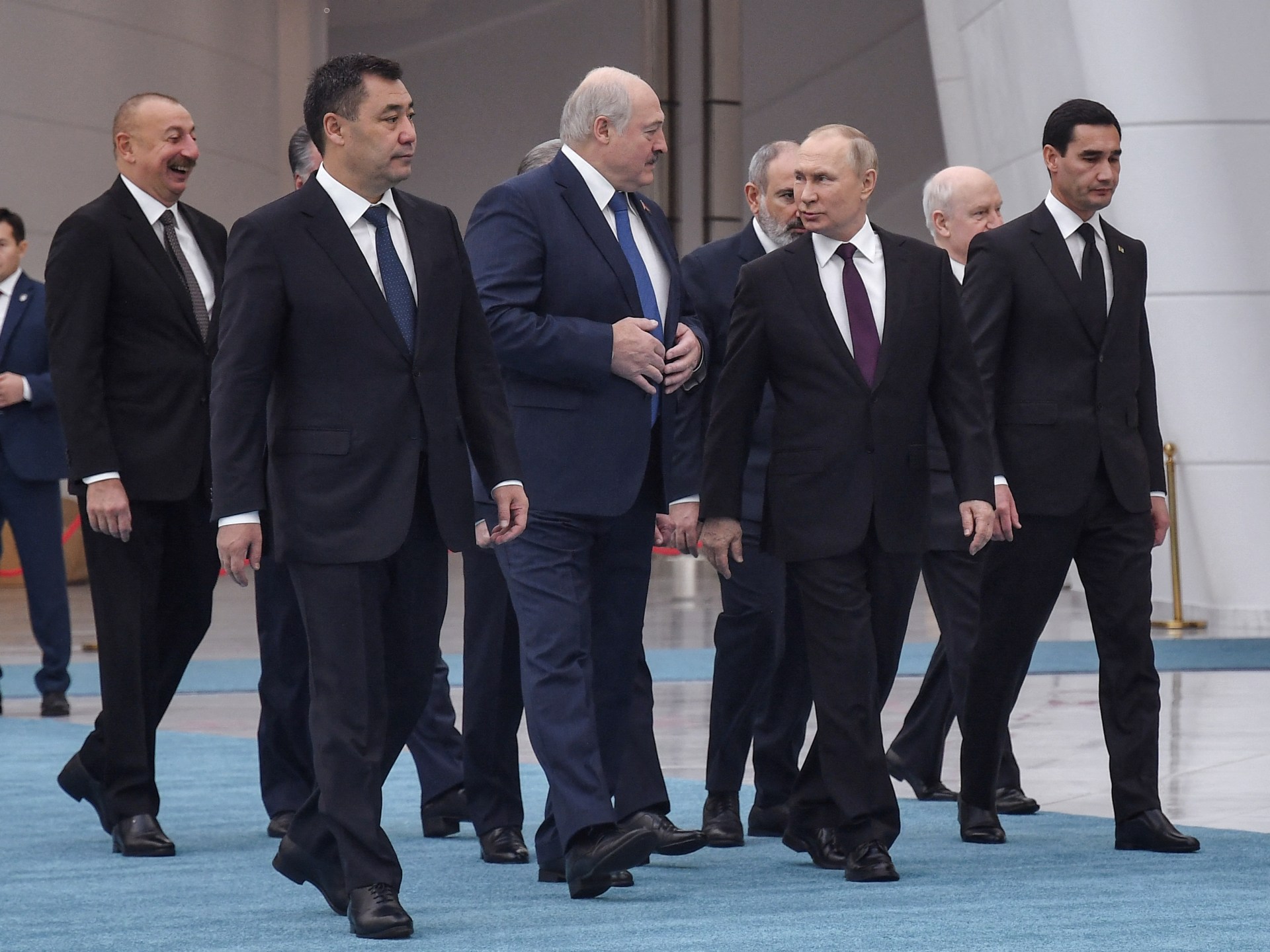The British newspaper "The Guardian" confirmed in a report that Russia has begun to lose its "soft power" in its relationship with the countries of the former Soviet Union due to its war on Ukraine, which broke out more than a year ago.
The report added that what Russia had done with regard to Ukraine made the countries of the former Soviet alliance fear for themselves a similar "adventure", and the war against Moscow also upset wide groups among the peoples of the region.
The report quoted Kornli Kakashiya, director of the Institute of Politics in Tbilisi, as saying that everyone knows that Russia is no longer popular in Georgia, explaining that Moscow has lost its soft power and is only focusing on using "brutal force" with its neighbors.
In return for Western stability in great support for Ukraine, and the relentless pursuit of countries such as Finland and Sweden to join NATO, the Guardian report shows that Russia's image in the countries of the former Soviet Union has been shaken, despite years of hard work to create a supportive political elite. and maintaining an emotional attachment to the Soviet Union.
"Sam's Neighborhood"
The Guardian report quoted Nargis Kasenova, director of the Central Asia Program at the Davis Center for European and Eurasian Studies at Harvard University, as saying that it is difficult for Kazakhstan to live quietly in this "toxic neighborhood", but she made it clear that by virtue of the geography that connects her country with Russia, it must be found. A temporary settlement, strengthening national sovereignty while gradually getting rid of Russian influence.
With regard to the conflict between Azerbaijan and Armenia in the Nagorno-Karabakh region, the report stated that, although Russia succeeded in approving a settlement for a ceasefire in the war between the two countries in 2020, which allowed it to have a military presence in the region, with the outbreak of skirmishes between the two conflicting countries, criticism began to be directed at Moscow. , especially by Armenian politicians.
Richard Giragossian, head of the Center for Regional Studies in Yerevan, the capital of Armenia, emphasized that "Russia is currently not only distracted, but also mired in its failed invasion of Ukraine," explaining that it has lost the diplomatic initiative regarding the Nagorno-Karabakh conflict.
Ukraine scenario
In Moldova, President Maya Sandu had previously warned last month that Russia was planning a coup, and called in a press conference to tighten security measures in the country, stressing that the coup plan included acts of vandalism, the implementation of violent operations and attacks on government buildings by military-trained people disguising themselves. in civilian fashion.
The Guardian report said that the outbreak of the Russian war on Ukraine revealed to the neighbors that ambitions will not stop at Kiev, and stated that the threats of the "Ukraine scenario" were never just propaganda, but rather the neighbors see it as an existing threat.
And he cited a statement by Timur Umarov, of the Carnegie Endowment for International Peace in Kyrgyzstan, explaining that the war in Ukraine affected Russia's image in Central Asia, which includes a number of Moscow's most committed partners.

